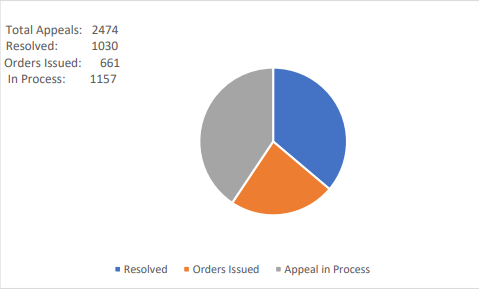Individuals or System Error: RTI Spirit In Slump
Shazia Mehboob
Islamabad: While the Right of Access to Information Act 2017 guarantees the provision of information to all citizens, the Pakistan Information Commission (PIC), the agency established to enable citizens to obtain information, does not actually grasp the spirit of the law.
RTI activists believe that the PIC sees its first obligation to defend public organizations that are not delivering information. The activists took the view that for PIC to show performance efficiency, cases are closed hastily to avoid displeasing the authorities.
This is a misguided approach, according to the activists, it should be incumbent on the PIC to compel government departments to fulfill the spirit of Article 19-A of the constitution to citizens.
According to Advocate Malik Saleem Iqbal, on September 16, 2022, he filed an information request with the Secretary Supreme Judicial Council (Registrar SC is ex officio Secretary Supreme Judicial Council) to seek information about the total number of references filed against the Honourable Judges before the Supreme Judicial Council and other relevant documents, from January 1, 2015, to December 31, 2021.
Mr Malik also asked for the identities of judges against whom the references were filed during the specified time as well as the total number of referrals adjudicated during the same period, but the secretary failed to respond to his request.PIC is hesitant to sue the Supreme Judicial Council (SJC) for failing to provide information under the Right of Access to Information Act 2017, Advocate Saleem stated.
He said that the PIC even denied the applicant the opportunity to present his case before the forum. The contested PIC ruling violates basic legal principles and states “no one should be condemned unheard”.
The applicant maintained that the PIC conflates the role of the Supreme Court and the Supreme Judicial Council ignoring significant differences in their respective roles. He filed an appeal against the SJC Secretary with the PIC on October 11, 2022, but the Commission did not hear the case.

On March 16, 2023, the applicant filed an application with the PIC to schedule a hearing on his appeal, but the Commission did not respond. Similarly, on July 7, 2023, the Commission determined his appeal unilaterally without furnishing him with notice to appear at the hearing thus disposing of the case, Advocate Saleem explained.
The Commission referred the IHC decision dated April 3, 2023, against Write Petition No. 2284/2021 and later ordered ICA on13-6-23. It is worth noting that the appeal 2273-20/22 was filed against the Supreme Judicial Council (SJC), not the Supreme Court of Pakistan.
According to the documents accessible to this scribe, the Commission referred to the case as “Malik Saleem Iqbal vs. Supreme Court of Pakistan,” when my case was titled “Malik Saleem Iqbal vs. Secretary Supreme Judicial Council.”
Advocate Malik is of the view that the Commission’s decision on his appeal is utterly unfair, unreasonable, and contrary to the intent of the information law and international standard for access to information.
Malik said the PIC judgment violates the spirit of the Right to Information Act 2017, which was enacted to promote transparency, accountability, and people’s engagement in public affairs as explicit in the Act’s preamble.
The PIC’s above-mentioned ruling based on the IHC’s orders, violates Article 19-A of the Constitution. Furthermore, Section 2(ix)(e) of the Act states unequivocally that a court, tribunal, commission, or board established under federal law is a public organization.
The aforementioned order, dated July 7, 2023, also violates Article 10-A of the Constitution, which provides the right to a fair trial, added the Advocate.
While discussing his interactions with the PIC, RTI activist Naeem Sadiq said that the PIC does not comprehend what information is. “I have many of such cases where the hearing is postponed for four or five months whilst the legislation requires the entire procedure to be finished within 60 days.”
“Instead of summoning the applicant to a hearing, they (PIC) should write directly to the public body asking the requested information to be made available so that it can be shared with the applicant.”
There should not be a discussion about how much information is required or not required, as the applicant has clearly stated in his letter what information exactly he needs. Hearing is useless in any case since the PIC is partisan to third party, the RTI activist said.
“In some cases, after months of delayed hearings, the PIC informs petitioners, we cannot continue your case because you have not provided this certificate”, Sadiq added.

Comments are closed.